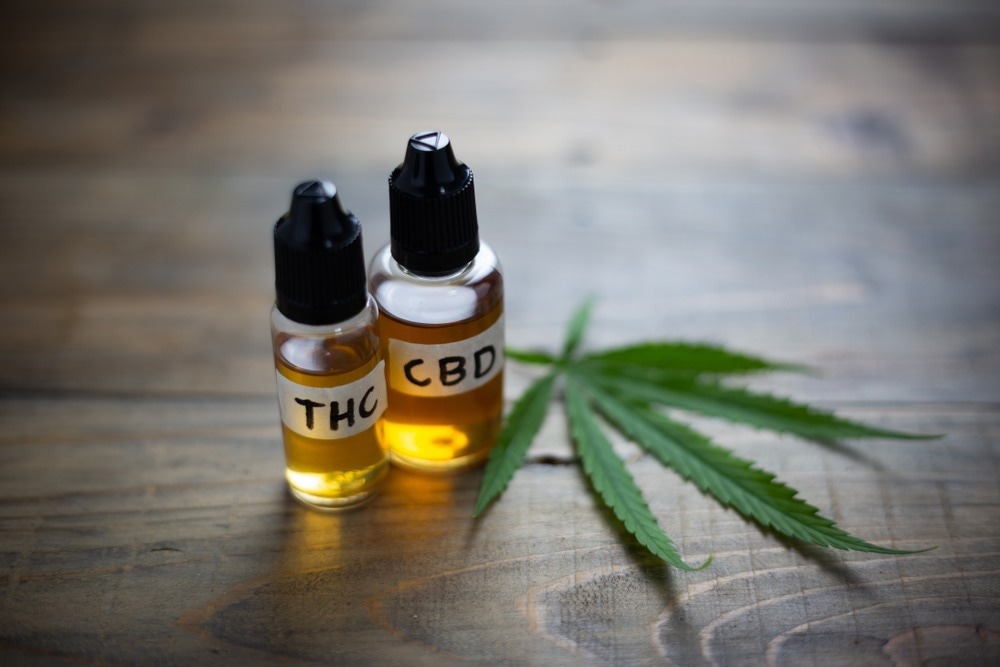The Future of CBD research, marketing, and regulation

In this interview, Professor Ted Dinan, Medical Director at Atlantia Clinical Trials, and Asa Waldstein, Principal at Supplement Advisory Group, discuss Atlantia’s expertise in clinical trials for CBD.
The direction of CBD research and marketing in the future is closely linked to the increasing FDA regulation of commercial marketing efficacy claims. Ted Dinan and Asa Waldstein share their industry experiences and advice for companies entering the US cannabinoid market on both marketing their products in a compliant manner and conducting clinical trials for CBD.
Could you both please introduce yourselves and outline your role at Atlantia?
TD: My name is Professor Ted Dinan, and I am the Medical Director at Atlantia Clinical Trials. My area of expertise is very much in the design of research in this field.
AW: My name is Asa Waldstein, and I am the Principal at Supplement Advisory Group. Regarding Atlantia, I represent the US regulatory and practical marketing side of the conversation.
What work does Atlantia currently do in regard to clinical trials for CBD products?
TD: In conjunction with Supplement Advisory Group, Atlantia wanted to be a part of both the science and the regulatory side of the CBD market. At present, there are three types of studies being conducted by companies in this area; the first is bioavailability, where a formulation is examined to see if the CBD is actually being absorbed. Bioavailability is essential. You want to know if the product is safe and well-tolerated. Then, of course, if you are going to market it, you want to be able to make some structure/function claims. The studies we design fall largely into those three groupings.

Image Credit: ShutterStock/HQuality
What factors influence the design of the study?
TD: The design of the study is determined by a whole raft of factors. For instance, when conducting an open study, the designs are very simple. This will enable the researcher to see what the outcome of that study will be. However, at the other end of the spectrum, there are complex studies which are randomized clinical trials, where you have a placebo control, a double-blind situation, and a parallel-group design. These are the most expensive studies to conduct.
However, in the middle, there are also other designs that are more complex than an open design but not as complex as an RCT: these are called a “cross-over design”: one that can enable the user to answer certain questions. It has its limitations as an approach, but it is one that, in certain circumstances, can be very valuable. Personally, I am a believer that when you look at the clinical trial process, the best place to start is by asking the question, “How are you going to market the product and what is the market going to be?”
I think the entire design of studies prior to that should be predicated on that fact. There is no point in designing studies and finding out that you want to market in a way for which the design does not give you support.
Users put together an appropriate protocol, which goes to the regulator – the Ethics Committee – and then recruitment can begin and the data can be analyzed. Then, of course, you put together the study, write it up, and finally publish it. This is a process that, in some ways,, is complicated but can be made unnecessarily complicated; as all things considered, it is a relatively straightforward procedure.
Recently, the number of registered studies in relation to CBD has increased dramatically over the past 3-4 years. What does this increase indicate about the direction of CBD research in the future?
TD: If you are looking at bioavailability, relatively small studies can be conducted that can give you very good data in relation to bioavailability. The therapeutic areas that seem to be attracting the greatest detention at present encompass a range of different fields. Cognitive function is relatively central; joint and bone health are significant; metabolic health and pain management are also key players.
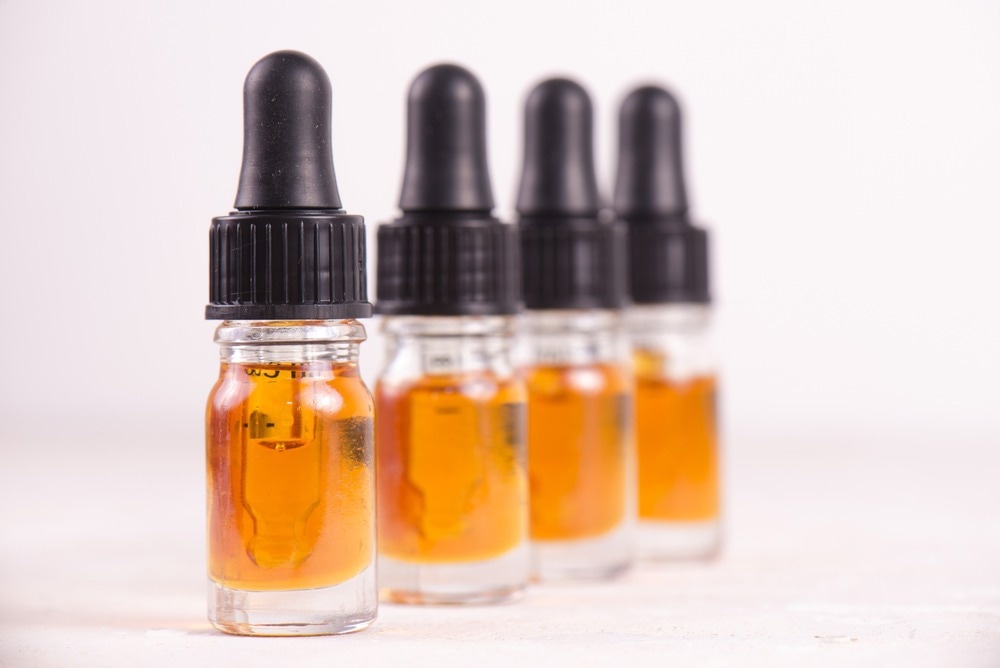
Image Credit: ShutterStock/Roxana Gonzalez
Anxiety is not currently one of the leading fields, but this remains another area in which many companies are investing. There are, therefore, a variety of potential areas and segments of the market that clinical trials are currently addressing.
What are some common mistakes that companies make when they enter the US cannabinoid market?
AW: Many companies seeking to enter the US cannabinoid product market may be looking to enter through a brand extension, an acquisition, aligned launch, or aligned extension. The first challenge is choosing the right manufacturing partner. Next is understanding the nuances of different state labeling and product registration requirements. A lot can go wrong when coming up with a product label and then registering the product. Finally, an important point to keep in mind is how uncompliant marketing is the easiest way to attract FDA and FTC scrutiny.
In 2022, we have already had 20 CBD-related warning letters. To put this in context, there were just seven warning letters from the FDA related to CBD in the entirety of last year.
Thus, the number of letters in 2022 has almost tripled in around half the time. This is a strong enforcement trend to watch.
A further aspect to note is that a large proportion of these warning letters are COVID-related. The guidance currently is that companies should not be marketing a product for COVID – but the really interesting learning curve here is that many of the companies that received warning letters have done so simply for citing COVID and CBD studies on their commercial website.

Image Credit: ShutterStock/Andrii Vodolazhskyi
This is, therefore, a good reminder for companies to exercise caution when using clinical studies on any platform that sells products. Also crucial to note is the fact that the FDA has recently cracked down on Delta-8 products and CBD products marketed for food production in other animals. In other words, it has never been riskier to market CBD products using high-risk language related to PTSD, Alzheimer’s, cancer, and so on.
How can companies successfully market CBD products in a regulation-compliant manner?
AW: When selling CBD, a good strategy is to remove all high-risk words, and buzzwords from marketing. Education is important, but it can easily cross the line into marketing, especially in the digital era. For example, if a company shares a study or a blog on their social media page, this can be considered advertising. This is why we read FDA and FTC enforcement trends, so we can ‘read the tea leaves’ of how they are interpreting marketing in this digital era.
If a company is using clinical studies on their commercial website, the best practice is to remove and possibly replace any high-risk words in the study name in the URL. Another example would be if a study was undertaken regarding anxiety, which is not currently a suitable claim for dietary supplements or in cosmetics in the US.
However, if it is accurate and truthful, changing this to a discussion about stress markers or setting up a study to talk about stress markers can help to lower risk.
What are the benefits of investing in research?
AW: In this crowded hemp space, there are a range of claims such as better bioavailability, rapid onset, and the need for substantiation. These are strong differentiators. These can help differentiate your product from the pack of all the several thousand hemp CBD products out there. Now, the same goes for companies that are investing in proving their product safety. Any company that invests in proving its product safety will be well-positioned to succeed in the future.
With the increased number of CBD products listed as a dietary supplement, is there a strong focus on a compliance standpoint?
AW: When it comes to dietary supplements, compliance is really the key. There are a few different core aspects of GMPs: namely CFR 111 and 117. These involve critical control points, HACCP safety, cleaning validation, and so on.
As a company that may be looking for a manufacturing partner, finding manufacturers that understand GMP compliance is really a strong differentiation point. My advice is for companies to ensure that they are not making disease claims and any marketing, including blogs, social media, tweets, hashtags, and so on.
TD: The real risk, from a company perspective, is where people move from making structure-function claims and into the area of making health claims. There are well-defined boundaries between those particular situations. Structure-function, for instance: a company can say that calcium is good for building strong bones, but if they are going to go into a health claim, they will incur interest from the FDA.

Image Credit: ShutterStock/24K-Production
AW: This idea brings up the idea of how to avoid the temptation to “diseasify”: how to not turn your supplement or hemp cannabinoid product into a drug by making claims hinging on disease. Another good example would be that a product “supports a healthy night’s sleep”- which is what we might call a structure-function – and then a disease-based claim would be that a product “helps insomnia.” These products are essentially saying the same thing, but the former is expressed in a lower-risk manner.
When it comes to CBD products, what should companies consider when it comes to the best doses for each product?
TW: When talking about dosing, it depends entirely on the formulation. One formulation may provide a very high blood level, and an alternative formulation may produce a much lower blood level. I do not think one can have a well-defined dosage in relation to something specific, like anxiety.
Talking about anxiety puts one outside structure-function claims. Anxiety or anxiety disorders are diseases, as far as the FDA is concerned. I think it is important to have surrogates for something like anxiety. The surrogate for anxiety is stress. For instance, we frequently do stress studies, and those stress studies might involve rating measures, like Cohen’s Perceived Stress Scale: it is a good way of rating stress, but it does not veer into the realm of anxiety.
When it comes to biological markers, I have spent 30 years measuring cortisol from saliva. Cortisol is the main stress hormone in humans, so in both saliva and the blood, it is a good indicator of stress, particularly when one wakes in the morning.
I, therefore, think there are ways of making sure that you do not veer into the health claims and that one remains within the supplements area by using surrogates for disease and not using disease categories like anxiety or depression.
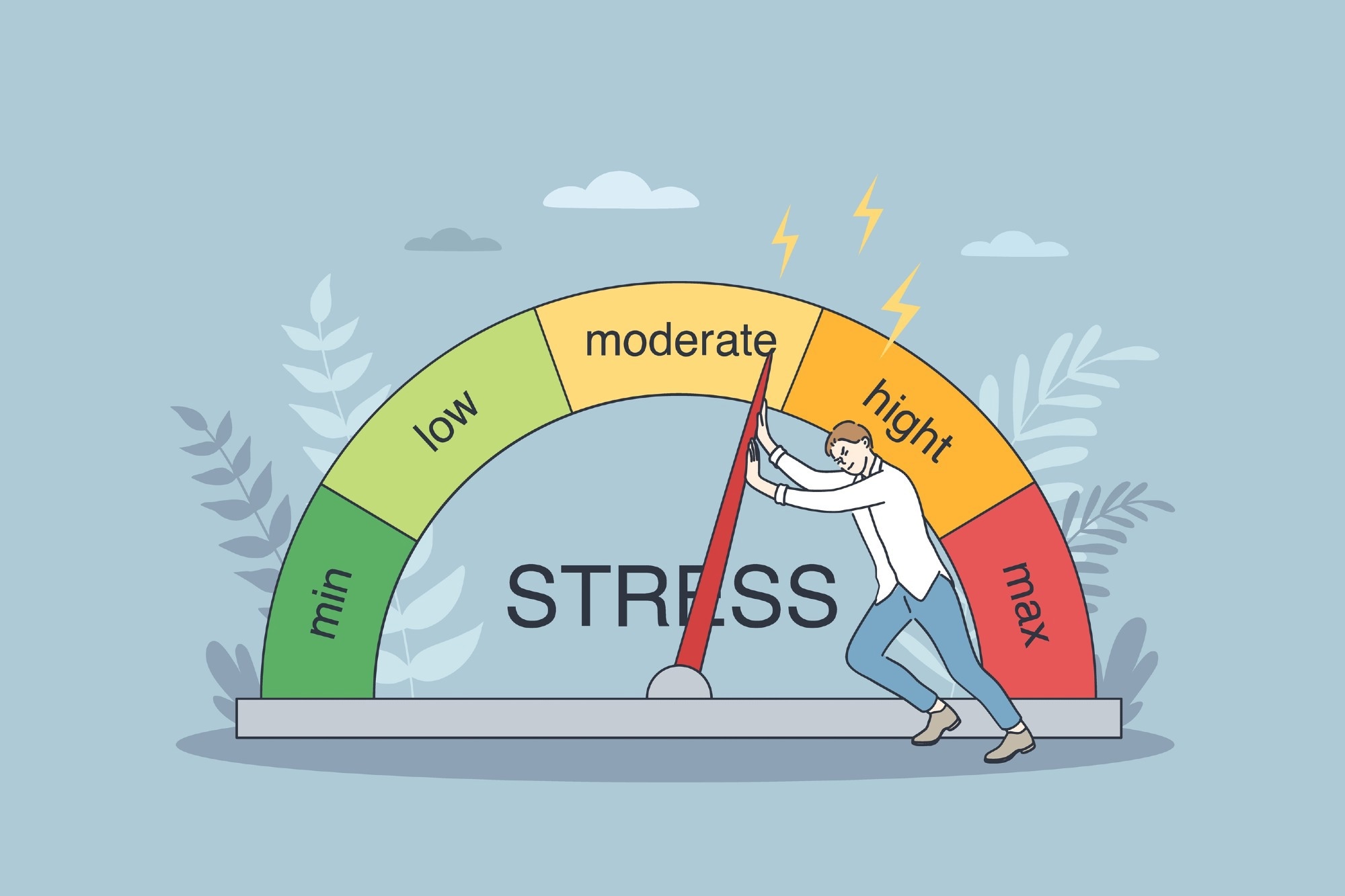
Image Credit: ShutterStock/Vectorium
AW: This is one of the best and most important reasons to partner with a contract research organization that understands marketing. Companies can spend millions and millions of dollars studying a dietary supplement for cancer, but at the end of the day, they are never going to be able to talk about that clinical study because dietary supplements – at least in the US- are not allowed to make any of these disease claims.
Partnering with someone like Atlantia, who understands the full scope of how you potentially will be using this in your marketing and how to set up the study correctly, can save you a lot of money and stress, both upfront and in the big picture.
TD: In comparison, partnering with someone like Asa, who is a regulatory expert, to give that advice, allows clients to define and set up a well-designed study.
When do you both think the FDA may approve CBB for use that is higher than 0.3 THC?
AW: There are a few progressive bills currently in Congress which are not likely to pass. However, one of the good things is that they continue to move the conversation forward. These bills – such as HRA 41 Congress – get the conversation out there, and more and more people are talking about it. Congress continues to hear from their constituents how a lack of federal guidance is hurting them in this regard. For example, if we consider Kentucky: there are a lot of hemp growers, but they do not have a way to sell their hemp CBD because of the unclear or unfavorable FDA position on hemp CBD right now. Issues are therefore coming up from a constituent level.

Image Credit: ShutterStock/fukume
TD: Within the European context, of course, there is a lot of variation from country to country. That 0.3{b574a629d83ad7698d9c0ca2d3a10ad895e8e51aa97c347fc42e9508f0e4325d} THC is allowed in some countries, 0.2{b574a629d83ad7698d9c0ca2d3a10ad895e8e51aa97c347fc42e9508f0e4325d} in others, and 0{b574a629d83ad7698d9c0ca2d3a10ad895e8e51aa97c347fc42e9508f0e4325d} in others. I am not currently sure whether there can be any consensus arising from EFSA. However, I do not see EFSA providing guidance that would be in excess of 0.3{b574a629d83ad7698d9c0ca2d3a10ad895e8e51aa97c347fc42e9508f0e4325d}: I simply do not think that is going to happen. I think there would be far too much objection to it in too many European countries – there are one or two exceptions where such countries would be quite happy to see higher levels. I think, in general, however, most European countries would not like to see a situation where CBD had more than 0.3{b574a629d83ad7698d9c0ca2d3a10ad895e8e51aa97c347fc42e9508f0e4325d} THC.
What is the greatest impediment to global growth within the CBD category of supplements as a whole?
AW: There is still a stigma that is attached to hemp CBD. Believe it or not, many people out there – perhaps even the majority of people- still think hemp CBD is marijuana. This collective consciousness is only going to change through continued education. As a result of this continued education, we are going to open up new groups of consumers.
From a global governance perspective, no government wants to open up trade for a product that could be dangerous. This is, therefore, one of the reasons why I personally think that broad spectrum extracts have a strong future. Broad spectrum is the full spectrum with the THC removed. Broad spectrum extracts that have safety data to back them up will be well-positioned to continue to grow. Not just in the US market, but globally as well.
TD: I believe that there are serious impediments to CBD moving forward with health claims. The main impediment is that those studies are going to be expensive to conduct. Unfortunately, the companies will take the view that with so many supplements out there, they will never be able to get enough market share to actually recoup the value, the money that they have invested in the studies.
Ideally, we would like to see CBD with appropriate health claims, and I know that some companies are working in this space. However, this is a very high hurdle because you are competing against other companies who will have no such data but will nonetheless take a share of the market from the companies who themselves have the data necessary to market CBD in the health space.

Image Credit: ShutterStock/elenavolf
What is your stance on Delta-8?
AW: The FDA previously sent out a consumer update about the dangers of Delta-8 last month. Now, the FDA do not send out consumer updates like this for anything, so when they do, companies and industries should listen. After this, the FDA sent out five warning letters to companies selling Delta-8 products. I would therefore consider that Delta-8 and others are in the category of biosynthetics or synthetic cannabinoids: they are unfavorable from a federal position, but they are also unfavorable from a state position.
Several states, such as New York State – a large market – have banned Delta-8 products. As a side note, Delta-8 is commonly manufactured with solvents, such as toluene, which can be really dangerous if they are consumed. Some Delta-8 manufacturers also may not have process control. It would therefore be dangerous if a company did not have good process control, included toluene in their product, and then this product was smoked.
Delta-8 also creates a really strong effect. If a child consumed Delta-8, or for instance, a person unaware of the risk took Delta-8 before driving, this could be significant and dangerous. Companies could get sued; people could get hurt; there could be a spike in 911 calls – simply put, the consequences could be terrible.
If companies want to sell Delta-8, there are certainly risks, but the bare minimum of compliance is to ensure that there is childproof packaging, that every lot is tested for solvents such as toluene, and that there is proper psychoactivity warning on the label.
TD: In a European context, Delta-8 is illegal in most European countries.
We’re seeing CBD being used in a lot of different health areas. How can we keep up with the demand, but also do it in a way that will give us the sufficient data that we need to market?
TD: You do not have to spend a fortune to come up with good data. If I want to show that a CBD product improves sleep quality, not that it has any effect on insomnia, there are excellent ways of doing that. We have published several studies based on students who were doing exams, and we looked at their quality of sleep over two academic semesters.
It was a probiotic we were testing. We gave them the probiotic or placebo during the exam in one semester, and in the other semester, we gave them the alternative treatment. We then looked at their sleep quality during the two semesters. This is considered a crossover design. As a result of that, the number of subjects required in the study is relatively small.
As it transpired, in one study, we found that a particular probiotic that we were working with improved the duration of sleep in the subjects who were doing the exam over what we saw with placebo. Of course, one could have chosen an RCT and spent a fortune doing the same thing. However, the quality of the data at the end of the day may not be any better.

Image Credit: ShutterStock/FOTOGRIN
AW: I think a key point here is focusing on things that are not disease-related: occasional sleeplessness; occasional stress. If someone has sleeplessness that is ongoing or chronic, this could be implied that it is related to a disease, such as insomnia. When you consider quality of life markers, these may include feeling refreshed in the morning, having a good quality of sleep, having a healthy inflammatory response, and so on. However, keeping those implied disease words out of the conversation is key.
What is the future for CBD in the US?
AW: The current state of the industry is obviously tough. There have been several companies that came into the industry; there was a low barrier of entry, and now there has been a contraction. To sum up, the industry is really having a hard time. The large companies that are really able to move the dial with sales and marketplace development are waiting on the starting line for clear FDA guidance. As I mentioned, there are a couple of bills in Congress that are fairly strong but not likely to pass. Nonetheless, it is good that they are moving the conversation forward.
Regarding the future of CBD hemp in the US, my advice is for companies to act like they want to be regulated. If you consider an adjustable product – like a dietary supplement product – I suggest that companies that want to have a strong differentiation and market advantage invest in the rapid onset bioavailability studies.
For companies that want to gain market share, when these huge large companies come into the marketplace, having an NDI dossier (a New Dietary Ingredient dossier ready to submit on day one of clear FDA federal guidance) is essential.
So, if HR 841 in Congress passes, I believe it does require a component that companies do have to submit product safety through a new dietary ingredient notification. The timeline that they give is 180 days, but it takes longer than that to put together an NDI. Therefore, I would advise companies to plan for the future and act like a reputable dietary supplement regarding hemp CBD future in the US.

Image Credit: ShutterStock/Sunvic
TD: Within Europe, I believe CBD will fall within the category of supplements or novel foods. Now, novel food is a unique label within the European context because it refers to any food that was not consumed in any significant amount prior to May 1992.
Now, if a company wishes to promote CBD as a novel food, they have to make an application to EFSA, and they will certainly need good data in relation to bioavailability, they will need good safety data, and they will need good structure-function claim data as well. The barrier is, therefore, quite high for a novel food. I do believe that, with the right data, EFSA will give authorization to a company for a novel food.
If a hemp CBD company is not a market leader or key player with a net worth of millions, how can they strive to be responsible and invest in a key aspect to improve their product?
TD: If a company really wanted to differentiate itself, I think there are a number of areas where that is possible without spending a fortune. We have alluded to one or two of them already. It is, therefore, one area in which it is possible to generate very high-quality data that the FDA or EFSA would be more than happy to regard as of a reasonable standard, and that would help to differentiate the product.
For instance, a client could spend millions on an RCT and it might end up with a negative study. In contrast, a judiciously conducted study in an area such as stress can yield quality data that differentiate the product from other CBD products on the market.
AW: It can be confusing for companies to know where they should start. Companies could start with an initial call with Atlantia and receive a sense of their future direction. It is good to know that you do not have to spend an arm and leg to get some good quality clinical data.
If studies are used in marketing on websites, are before-and-after photos acceptable? Secondly, as you generate information from studies and your data, how can you safely use that information on your website to know that you want to best market the data that you have, without running the risk of infringing the guidelines?
AW: Imagery is considered marketing in the eyes of the authority. For example, let us consider a before-and-after picture: if it was some type of skin condition, such as acne, a before-and-after picture is considered marketing. We have to think of the consumer expectation or the totality of the advertisement.
Latterly, imagery has not been scrutinized as much as it has in the past, but it is certainly considered marketing. It is therefore important to be careful with before-and-after pictures, but really, the key point here is removing those ‘disease words.’ If we want to talk about clinical studies, it is vital to make sure that you do not have any high-risk disease words in your abstract, posted on your website, in the study name or in the URLs.
URLs are considered marketing if they have a high-risk disease word within them.
In my opinion, several years ago, the FDA was a little more tolerant than it is today. Recently, however, in the hemp space, in particular, mentioning studies on commercial websites could invoke a hemp CBD warning letter. In my opinion, if COVID CBD studies had not been cited, no warning letter would have followed.
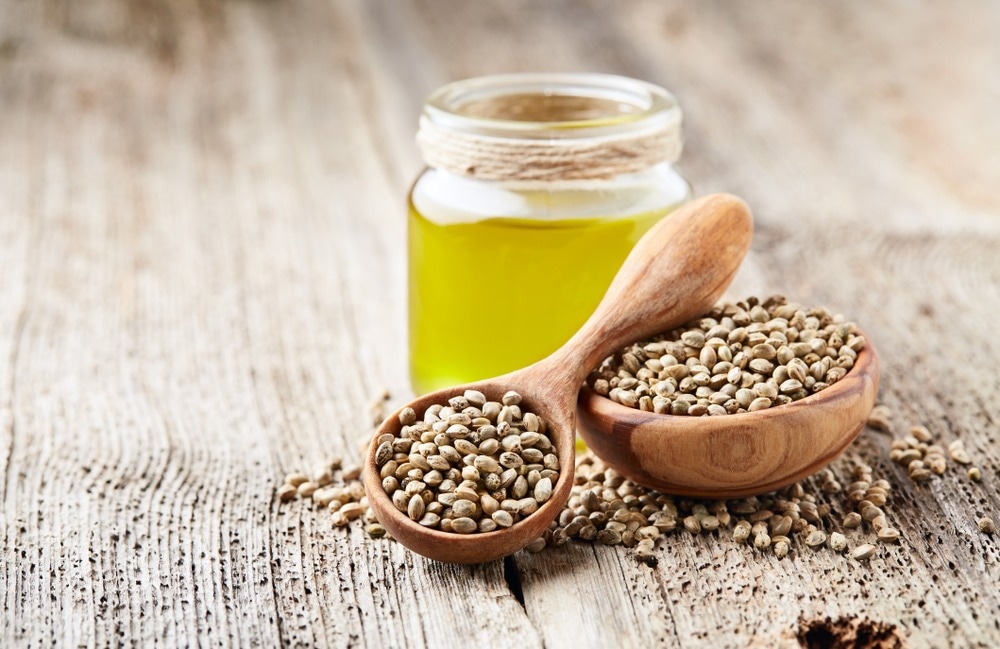
Image Credit: ShutterStock/Dionisvera
TD: It is good that the FDA is taking a negative approach to people using health claims and before-and-after images on their websites because if this were not the case, there would be no incentive to do research. This field will not move forward without data.
Data is what will drive the field forward. If you disincentivize people from doing research, then it clearly will damage the entire field. This is why I think it is positive that the FDA is imposing relatively strict standards and are not allowing certain companies who have no data to verify claims on their website to imply that their CBD product has helped users beyond their data.
Are there any final words of wisdom either of you would offer in terms of setting up your trial? What are the types of science and trials that a new company might start with as they look at entering the dietary supplement space with CBD?
TD: The essential point, in my opinion, is to engage in adequate discussion before you do any studies. Asa is the qualified representative in relation to the regulatory landscape, whilst Atlantia is obviously happy to discuss the potential designs relative to the market you wish to enter.
I think discussion is key: before you do any trials or before you design anything, make sure that you get enough information and discuss with the appropriate people so that the study you do put together is actually the study that will enable you to enter your chosen market.
From the regulatory position, what are your key takeaways for those starting in this space, or that have been established in this space and looking to grow?
AW: Companies that are looking to grow need to consider formulation, and differentiation, backed by some scientific substantiation. Essentially, this means coming up with really thoughtful formulas that bring together the best in nutraceuticals and what I like to call “the phyto-alliance.”
There are hemp cannabinoids; there are terpenes, and these are wonderful. When you put them together with other herbs, this can have a positive effect. Herbs like passionflower and skullcap work extremely well in combination with hemp cannabinoids and terpenes.
The phyto-alliance is undeniable. When we add other nutraceuticals- such as GABA – the sky is truly the limit, but we need to have some data to prove that our product works and that it is safe. That is where a great CRO relationship such as this with Atlantia comes in.
About Atlantia Clinical Trials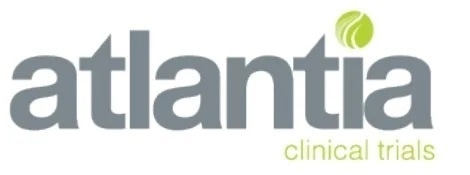
Atlantia Clinical Trials Ltd is a CRO that specializes in conducting studies on foods, beverages, and supplements for companies worldwide that want to scientifically validate their functional ingredients to support an: EFSA (European Food Safety Authority) Health Claim; FDA (Food & Drug Administration) Structure Function Claim; or General Product Marketing Claim.
Atlantia works with world-leading scientists (among the top cited 1{b574a629d83ad7698d9c0ca2d3a10ad895e8e51aa97c347fc42e9508f0e4325d} internationally, in the areas of digestive health and functional foods) at the: APC Microbiome Institute in University College Cork, Ireland; Teagasc, Moorepark, Ireland, and recognized centers of excellence globally.
Atlantia runs and operates its own clinic sites and conducts all studies to ICH-GCP standard (International Council for Harmonization of Technical Requirements for Pharmaceuticals for Human Use – Good Clinical Practice). Its team includes physician experts in digestive health, mental health (psychological stress and cognition), cardiovascular health, sports performance, metabolic disease, bone health, immune health, and healthy ageing. The clinical team also includes project managers, research nurses, nutritionists, certified sports trainers and lab researchers.
Atlantia manages all elements from protocol design, placebo manufacture, recruitment, and study execution, to sample and data analysis, statistics, and report/dossier preparation to provide a service that is technically, scientifically, and clinically superior.
The clinical studies cover a broad spectrum of functional food and beverage categories, such as dairy, cereal, probiotics, different protein forms, infant-specific foods, vitamins/minerals, plant or marine extracts, and medical foods.


